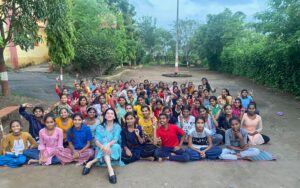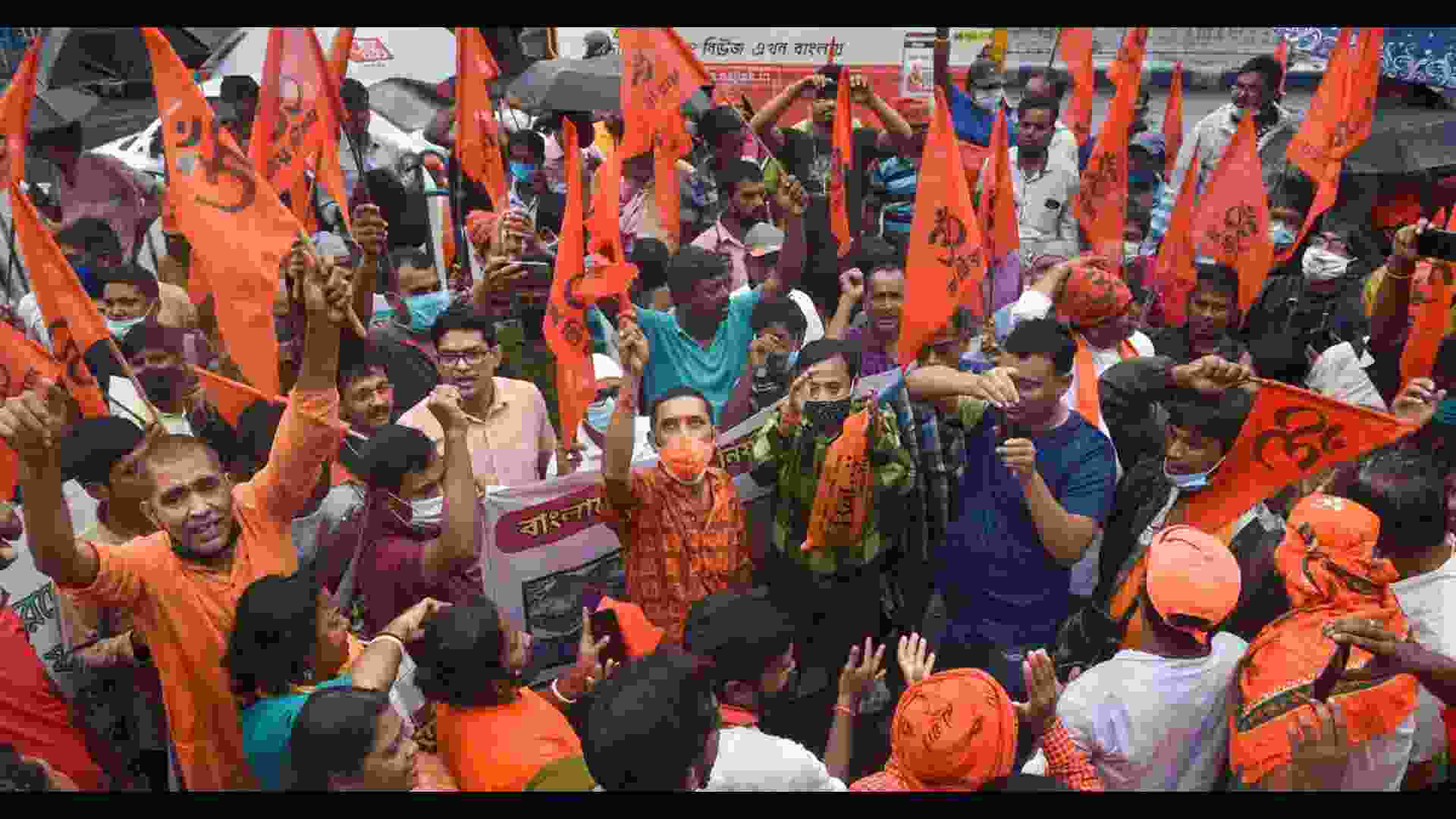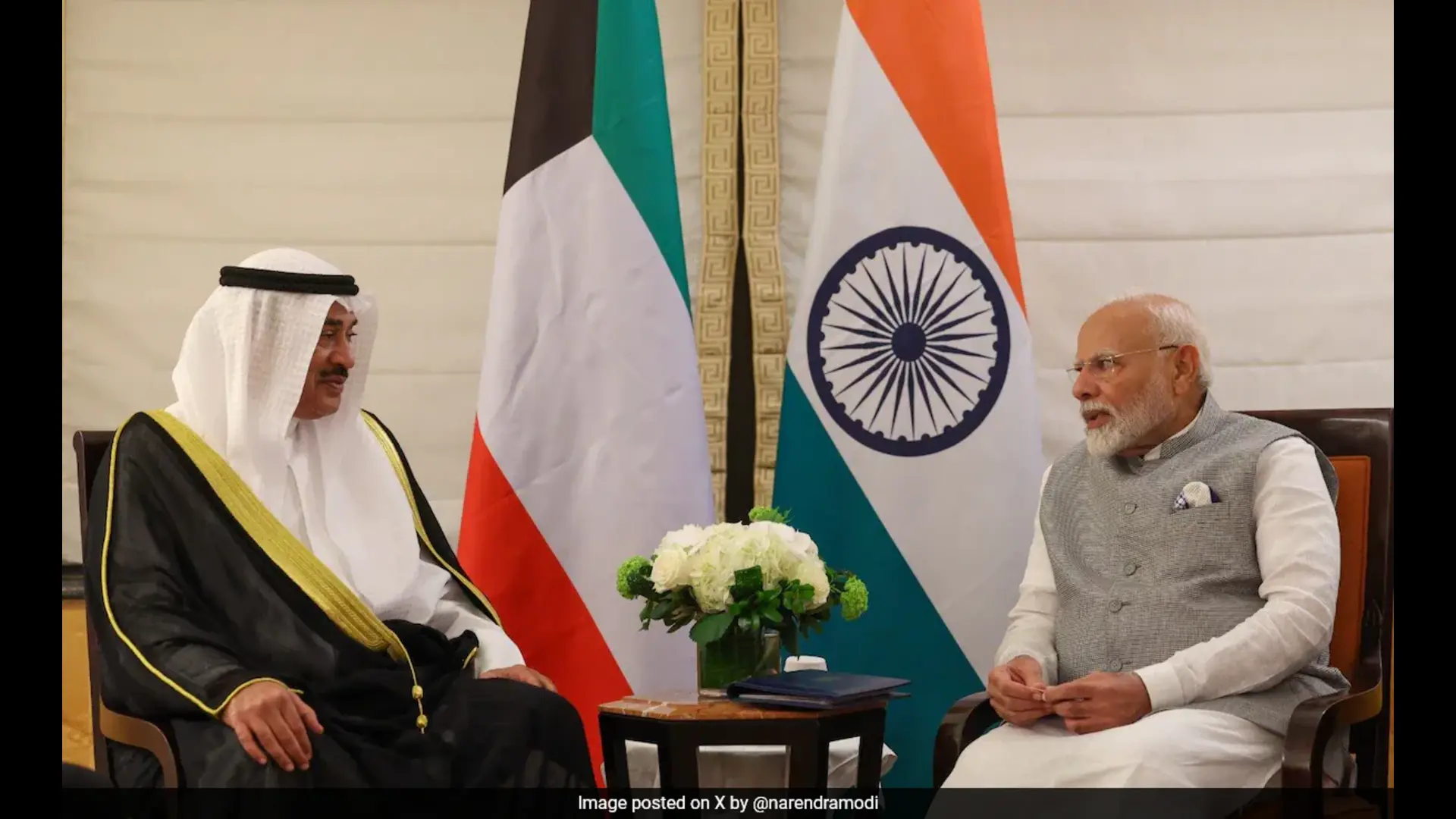The spokesperson of Indian National Congress in her region of Madhya Pradesh, a graduate from London School of Economics, a royal and a philanthropist, Kumari Shubhangana Raje strikes one as a young woman on a mission. Her aura of warmth and deep intellect and her delicate persona cloaking her feisty spirit that comes to fore when she is at work, empowering and educating the less privileged tribal girls of her district.

She is the daughter of Rajkumar Dhruv Raj Singh, a Daly College alumnus, who is known in his region for not just mentoring farmers but also striving hard to be the voice of his people of Kunjrod in the rural district of Dhar. His father Shrimant Raja Narender Singh was the ruler of Jamnia, a Princely state that historically ruled over 86 villages covering 200 kilometres. The state of Jamnia was founded in 1555 by Songara Chauhans, with their ancestry stemming from Chaturbhuj Chauhan who were granted the title of Raja during the Mughal period by Badshah Jahangir.
She chats with The Daily Guardian on her vision for her region and how young, educated and aware girls like her can walk the talk. Having founded Kunjrod Welfare Foundation she is focusing on the campaign of empower and educate in her region.
Q.Tell us a little bit about your foundation
A. Kunjrod, the name is inspired by Dev Prakriti from the Bhagwad Gita which literally implies actions done with goodness at heart. Our mission is to help young girls in their journey towards education and self-sustenance.
Q.Please share the work you are doing in this foundation.
A. I started multiple campaigns in rural areas of Dhar district which is where my ancestral state was. One of my main campaigns is the ‘Educate and Empower’ campaign to promote education amongst tribal girls I reached out to about 2000 tribal girls in district Dhar and have taken up their needs through my foundation.
Q. How is your foundation assisting them in their education?
A. Beti padhao is not enough. These girls do go to school but don’t have the means to buy even their text books or notebooks. We distributed competitive examination books amongst girls who aspire to give NEET, IIT JEE and Civil Services examinations but cannot afford to buy the study material. We are also distributing story books in Hindi to develop reading habit among primary school girls and Hindi and English grammar books to improve their language skills.
I have already distributed 1000 pairs of footwear to girls who walked barefoot to schools. The idea is to ensure that these girls don’t just get a chance to go to school but also excel at what they do.
Q. How did you select the girls you wanted to empower?
A. Our campaign was to educate and empower tribal girls living in government hostels across the Dhar district in Madhya Pradesh which is by far most backward. I worked with hostels like Kasturba Gandhi Adivasi Kanya Chatrawas, Sulawad, Netaji Subhash Chandra Bose Adivasi Kanya Chatrawas, Sagor and Adivasi Kanya Chatrawas, Kunjrod and in the bargain we had helped over 10000 girls.
I also visited the girls orphanage in Nalchha block of Dhar district where the girls have either lost their parents or have been abandoned by them. Here we took on the responsibility to provide sanitary kits to the girls, a very important need that is not being taken care of by the government. This orphanage has now become a beneficiary of our menstrual hygiene campaign
India hosts about one-fifth of the world’s population of adolescent women. Unfortunately, most of them, especially those living in rural areas, typically face many restrictions that limit their agency and autonomy. During menstruation, these restrictions become much more severe, preventing them from participating in many aspects of social life, worshipping, bathing and cooking.
Udita Yojana was implemented by the state government in Madhya Pradesh for free distribution of sanitary pads. However, it continues to remain in the pilot mode and needs to be scaled up. Improved menstrual hygiene and health has been a part of policy discussions in India for long but the discussion has largely been blind to existing geographical variations. Future interventions and programmes to enhance menstrual hygiene among adolescent women must focus on reducing geographical differences in rural India. District wise requirements need to be considered.







